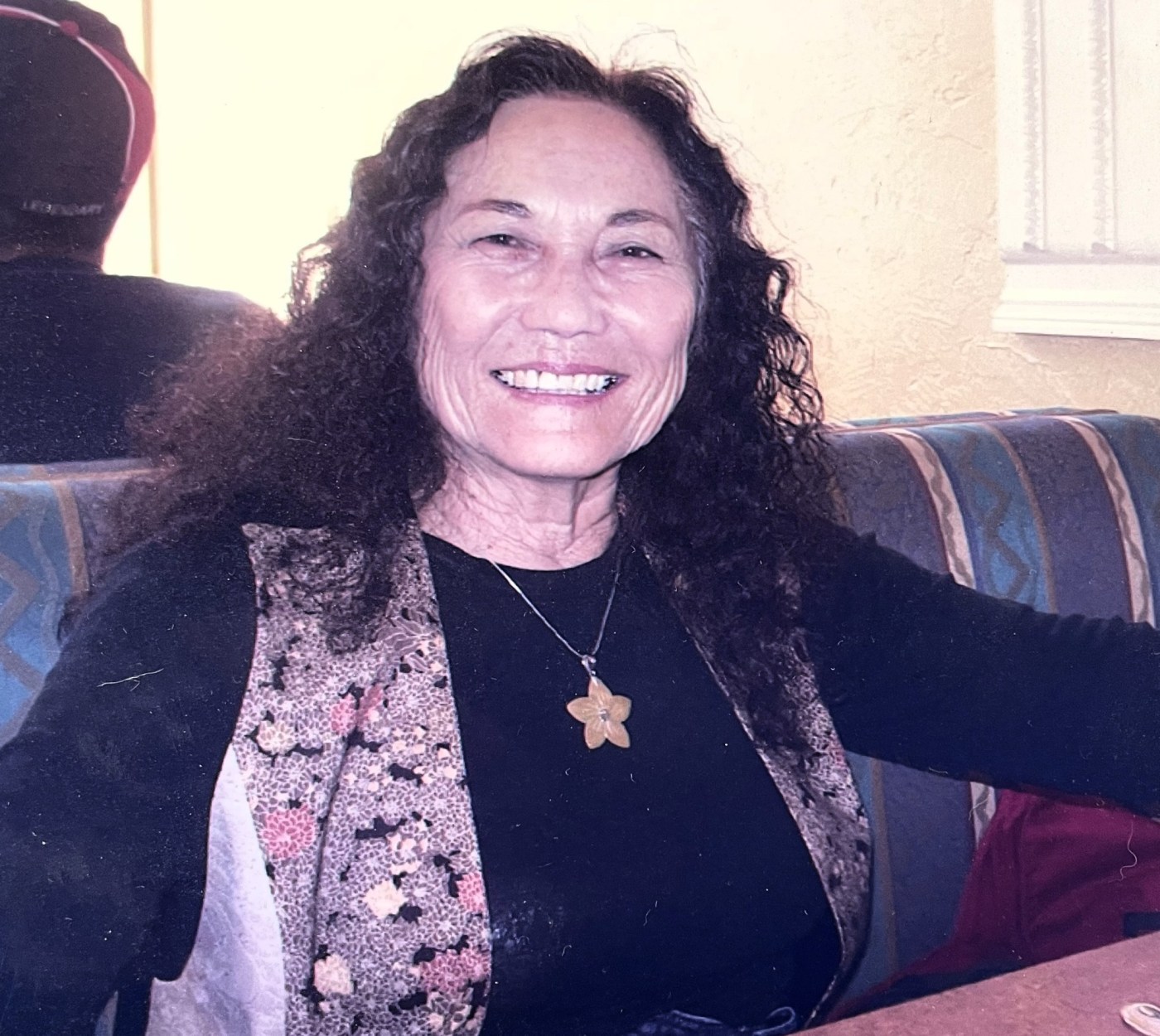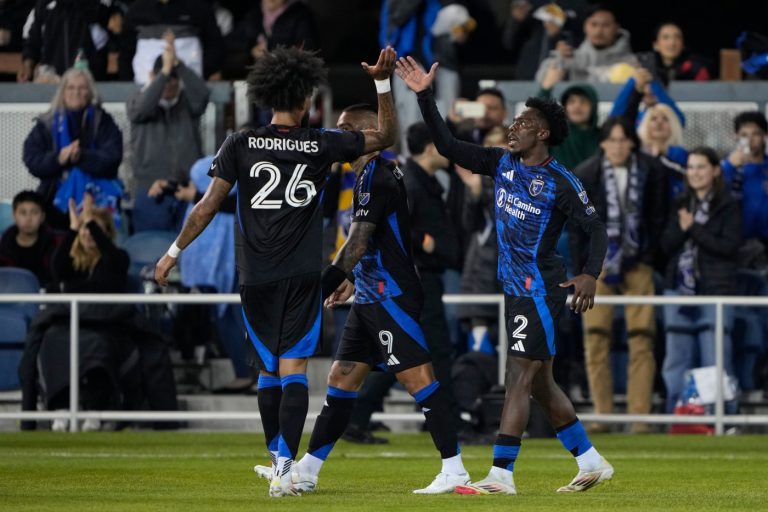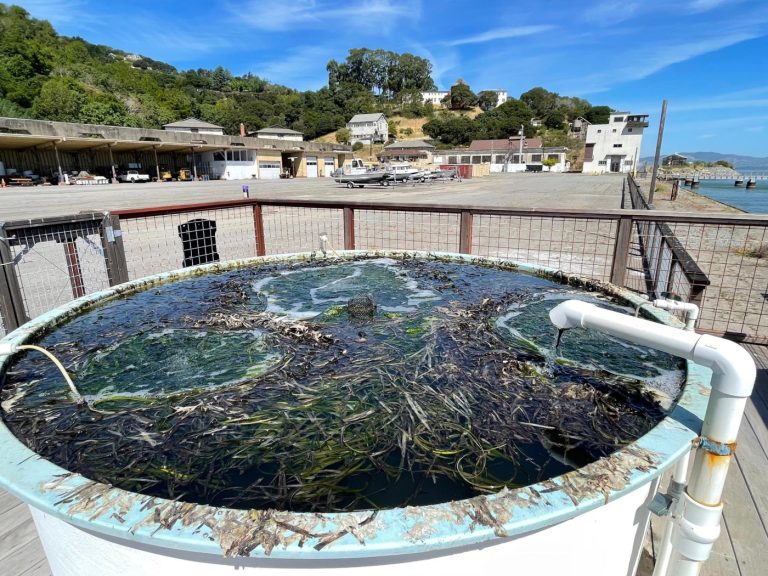SANTA CRUZ — Jeanne Wakatsuki Houston, an acclaimed author who shared stories of growing up in a Japanese American internment camp during World War II in her 1973 memoir, “Farewell to Manzanar,” died in her Santa Cruz home Dec. 21. She was 90 years old.
Jeanne Wakatsuki Houston’s death was confirmed by family members and representatives of HarperCollins, which published the 50th anniversary edition of “Farewell to Manzanar.” Her son, Joshua Houston, said she maintained a “quiet strength” until the end.
“I really saw it in the end when she was facing cancer,” he said. “She was completely unwavering, unflinching and faced it with open eyes and just showed strength and courage all through the end.”
Jeanne was born in Inglewood, California, on Sept. 26, 1934, as the youngest of 10 children and grew up in the Los Angeles area. She maintained a normal childhood for the first seven years until she and her family were forced by the government to board a Greyhound where they would be driven three and a half hours away to spend the next few years in an internment camp.
Following the bombing of Pearl Harbor in 1941, Americans’ sentiments toward people of Japanese descent, even those who were born in America, became incredibly hostile. In 1942, a few months after the U.S. entered World War II, President Franklin Delano Roosevelt signed an executive order that forcibly relocated 125,000 Americans of Japanese descent to 10 internment camps throughout the country.
Jeanne’s family was relocated to a camp in Manzanar in the Inyo County desert. Jeanne’s daughter, Cori Houston, said her mother — being very young — had no idea where she was going. When her parents told her they were going to camp, her mind went to images of a summer camp.
“When they got there, it was nothing like that,” said Cori. “It was dusty, it was barren, it was cold.”
In addition to the cold winters, Jeanne’s family endured very hot summers, confined spaces perpetually monitored by armed guards, canned food provided by the military and unclean tap water that often resulted in dysentery. Still, those interred tried to make the most of their conditions.
“The people got together and all tried to make a living as comfortable, and give themselves some dignity and build a life there for four years,” said Cori.
Jeanne’s daughter Gabrielle Houston-Neville said her mother’s ability to see the positives in even the worst situations stayed with her for the rest of her life.
“She always took the perspective of learning from a situation and what the positive is of it,” she said.
Following Jeanne’s family’s departure from Manzanar, she resumed her schooling in Long Beach before her family moved to San Jose, where her father became a sharecropper for Driscoll’s and she graduated from James Lick High School. While a student at San Jose State University, she met James Houston and the two married in 1957. They moved to Santa Cruz in the ’60s when James got a job at the university.
“My father had, earlier in his life, come to the beach to body surf and play volleyball at Santa Cruz Main Beach,” said Joshua. “They also found a house that we ended up buying that we grew up in.”
Houston-Neville said the decision to write “Farewell to Manzanar” came when Jeanne was approached by her nephew Gary Nishikawa, who had just learned about the internment camps in school and asked her if she lived in the camps or knew anyone who did.
Jeanne Wakatsuki Houston and her husband, James. (Contributed — Houston family)
“When he asked her that question, it spurred the revelation of ‘Maybe I should write a book about it,’” she said.
Related Articles
Bay Area’s Italian legacy: 5 fascinating immigrant stories
History of the wharves of Santa Cruz County
Today in History: January 13, Trump becomes first president to be impeached twice
3 Bay Area local history museums to fascinate you in 2025
Travel back to San Jose’s wild days at the massive History Park
Alongside James, also a published author, Jeanne co-wrote “Farewell to Manzanar” which blended her personal stories with historical narrative, highlighting both the injustices of these camps but also the resilience of the human spirit. The book has sold 1.6 million copies and became a major part of high school and college reading curricula. It was also adapted into a made-for-TV movie that aired on NBC in 1976 that was nominated for an Emmy and won a Humanitas Prize.
Joshua said the book was a lot of people’s first exposure to what happened inside the camps.
“It shined a light on an event in American history that a lot of people weren’t aware of at the time,” he said.
While the book showcases the poor accommodations those interred experienced, Joshua said it also highlights how the Japanese American community persevered.
“It’s a tragic American story, but it’s also a positive uplifting American story as well,” he said.
Since then, the U.S. government has apologized for the camps. Feb. 19, the day the executive order was signed in 1942, has become a national Day of Remembrance, and on the 34th anniversary, President Gerald Ford signed a proclamation that terminated the executive order and apologized for the internment. In 1988, President Ronald Reagan signed into law the Civil Liberties Act, which formally apologized and granted each surviving internee $20,000 in compensation. In 2020, California — where the majority of the internment camps were located — apologized for its role in the relocation efforts.
Houston-Neville said her mother was pleased with these formal acknowledgments.
“She came from her family being put in a prison camp and taking everything from them as she was growing up but to have a positive spin on that, which was, ‘We live in a country where our government actually acknowledged it and, look, now everybody knows. Thank God we live in this democracy where our government can acknowledge that they did this, this travesty happened and it’s not gonna happen again,’” she said.
Jeanne also wrote the historical fiction novel “The Legend of the Fire Horse Woman” and co-wrote “Don’t Cry, It’s Only Thunder,” with Vietnam War veteran Paul G. Hensler. In 2002, she was acknowledged by the city of Los Angeles’ Japanese American community, named grand marshal of the Nisei Week Parade in Little Tokyo, which was inducted into the California Hall of Fame by Gov. Gavin Newsom in 2019. Additionally, Jeanne was the recipient of a United States-Japan Cultural Exchange Fellowship; a Rockefeller Foundation residence in Bellagio, Italy; and a 1984 Wonder Woman Award, bestowed upon women over 40 who have made outstanding achievements in pursuit of truth and positive social change.
The Houstons were also major promoters of Asian cinema in Hawaii, which they considered their second home. When they were invited to the Hawaiian International Film Festival in 1986 for a screening of “Farewell to Manzanar,” they were inspired to bring something similar to their hometown, resulting in the Pacific Rim Film Festival, which brought Asian films from throughout the world for an annual festival in Santa Cruz for 25 years.
“The mission was to promote this cross-cultural communication,” said Houston-Neville.
Jeanne’s children all admired her resilience, strength and overall positivity.
“She was an amazing woman, and she did a lot for social change and justice in the world,” said Houston-Neville. “I hope that her legacy continues on and that the word continues to get out there.”
In addition to her children, Jeanne is survived by her brother, Kiyo Wakatsuki of Honolulu. James preceded her in death in 2009. A celebration of life is scheduled for March 1, and further details will be announced in her Sentinel obituary.












